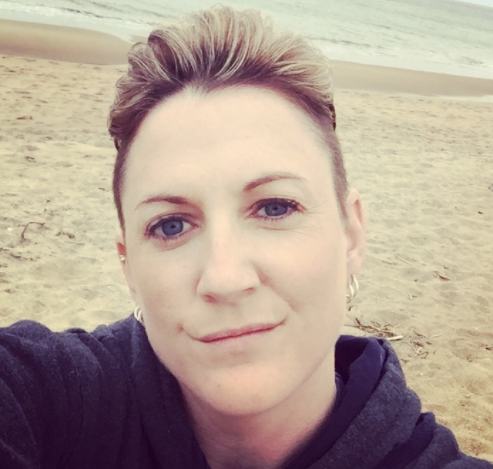O P I N I O N
THE SOAPBOX
Stand up. Speak up. It’s your turn.
 In today’s battle to figure out the best way to fight the opioid and addiction crisis in New Hampshire and across the country, we are getting it wrong. Major officials, advocacy groups, and other stakeholders are calling not just for increased funding, they are seeking the right person, organization or business to blame, and they are asking all folks in recovery to raise their voices and rise up. All of this in an attempt to find or create that magic “thing” that will make a person with an addiction stop using and end the addiction crisis.
In today’s battle to figure out the best way to fight the opioid and addiction crisis in New Hampshire and across the country, we are getting it wrong. Major officials, advocacy groups, and other stakeholders are calling not just for increased funding, they are seeking the right person, organization or business to blame, and they are asking all folks in recovery to raise their voices and rise up. All of this in an attempt to find or create that magic “thing” that will make a person with an addiction stop using and end the addiction crisis.
Every day we hear “We need more funding for this. We need more funding for that.”
Every day we hear “Big Pharma is to blame. The doctors are to blame. The person using is to blame.”
Every day we hear “We need more people in recovery to tell their stories. To be vocal about their journeys.”
We are getting it wrong folks. Our focus is off and needs to be shifted.
What we are forgetting or perhaps not paying enough attention to is the current soil in which the person with an addiction lives. Their current soil is diseased with shame, stigma, judgment, bias, lack of understanding, fear, apprehension, apathy, fatigue, etc. Their soil needs to be tilled with the nutrients of learning, understanding, love, acceptance, compassion, patience, empathy, etc. so it can be rejuvenated for people to flourish. We do this for plants in our yards and in our homes. Why wouldn’t we do this for the people in our world?
The mother whose child was recently given a diagnosis of cancer. She would have no hesitation about going into work and reaching out to her coworkers about her child’s recent diagnosis. Her soil would be a safe one to share her fears and her concerns and she would very likely be surrounded by compassionate folks planning meals to bring over and offering daily words of encouragement. Would it be the same for that mother if she found out that her child had an addiction to drugs or alcohol? Would her soil be safe for her to feel comfortable sharing about her child’s addiction and what they were going through? If she did raise her voice and share what was going on, would she be met with compassionate folks planning meals to bring over and offering daily words of encouragement? With extremely few exceptions, the answer to that question is a resounding NO. New Hampshire and the rest of the country, we need to change the soil in which we live.
This starts with educating the public about the specific role they can play in the addiction crisis and what they can be doing each and every day to help end it. Businesses, schools, faith leaders, first responders, city and state officials, families, friends, neighbors, co-workers, we all have our part to play in ending this crisis.
All of the funding in the world is not going to change or solve the addiction crisis alone, as we would never think that for any other public health emergency. This is equivalent to thinking that after a hurricane we should all sit back and wait for the Red Cross to roll into town because they were given all the funding. That we shouldn’t get the boats we have in our backyards to go help our neighbors because FEMA was given all the funding. That we don’t need to share what we have with others because the Salvation Army was given all the money. That we should just sit back and wait. Sit back and do nothing.
Yet this is not what you see during national emergencies. This is not what you hear from leaders during national emergencies. During any national public health crisis or emergency, the public is always asked to do specific things for their fellow man. To help out in any way they can. To serve, to assist, to reach out, and to innovate creative solutions to save lives. The addiction crisis we are experiencing should be treated no differently. The public should know specific things that they can be doing to help someone stay alive so they can find the recovery of their choosing.
Just more funding, more stories, pointing fingers is not going to change or solve the addiction crisis. We need to change our soil. And I am directly calling on a leader to stand out in front of their citizens, and to specifically ask for that very thing to happen. Now.

Bernadette Gleeson is a recovery innovator, speaker, and educator and is the founder of BAO Communications – a company dedicated to harnessing and activating the public to help combat the addiction and opiate crisis.







